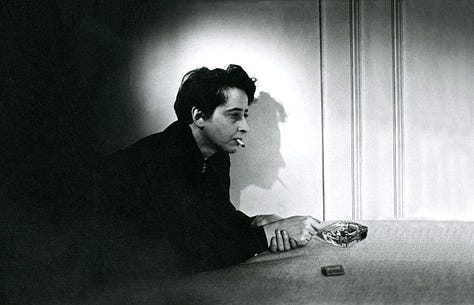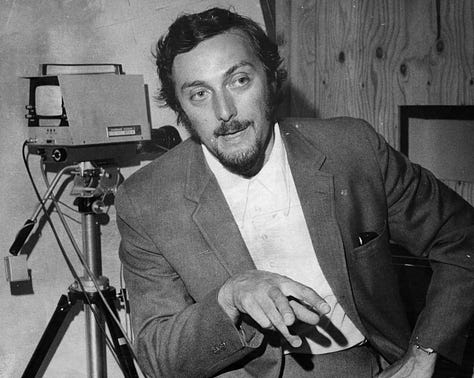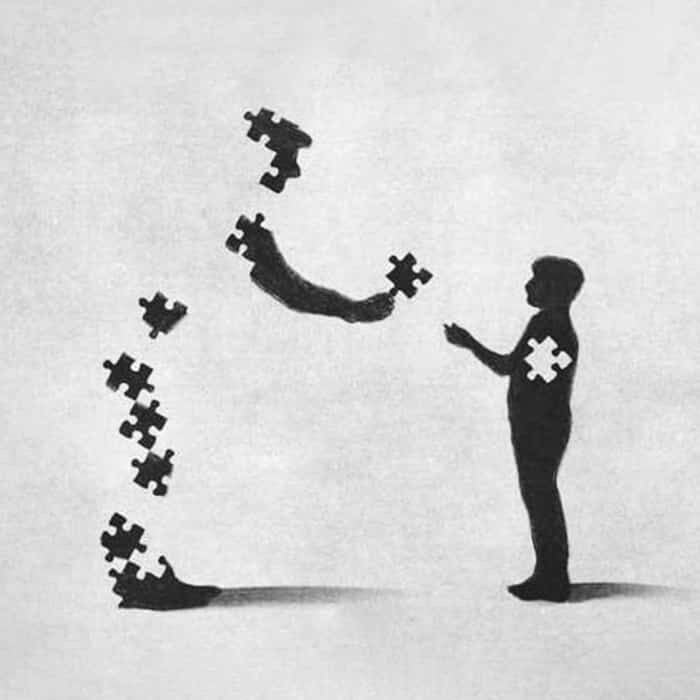(Spoilers ahead)
Squid Game’s finale seems to have disappointed lots of viewers. Critics argue the last few episodes were messy and filled with creative missteps. Beyond the cringe-inducing scenes with the VIP’s (like seriously, you’re telling me they got Cate Blanchet at the end but couldn’t find better English-speaking actors for the VIPs???), I thought the ending sent a powerful message. Yes, yes, I know. Before you come at me let me explain. I know lots of people think having a baby win the games is idiotic - but the question posed goes beyond that. Squid game explores one of my favorite philosophical topics: the debate on human nature.
All players end up in the games out of necessity. They either owe money, are homeless or find themselves in some precarious situation. They all get chosen consciously, and serve as a human circus for a group of sadistic multimillionaires. We don’t get a backstory for any of these VIPs, but I think we can all agree they are all just plain evil people. In-ho’s past gets revealed to us in sporadic small doses. We never get a real answer as to why he’s decided to be in charge of the games. We learn he was also part of the games at some point and went through some sort of family drama. He also seems to see himself reflected in Seong Gi-Hun; he secretly roots for him to win and hopes he’d make the same decisions he had to make when he was a player. They act as opposite sides of the same coin.
If we look at the actual players, we find various characters. Some become cruel very early for their own gain; some are forced to hurt others under the circumstances; some choose kindness. And here comes the proposition posed by my favorite classic philosopher: are human beings evil by nature? Hobbes believed so. He argued that in state of nature (that is, outside of societal norms, in a pre-society type of state) humans turn against each other and act selfishly. This is the reason why the State (Leviathan) is created: through a social contract, a lesser evil that takes agency away from its citizens is established for order and peaceful coexistence. The Squid Games seem to create a state of nature environment for the players: they are stripped away from society and put in a position to choose between cooperation or confrontation. The third season adds some extra spice with the voting element - all players choose to keep playing; meaning they choose to put others at risk of death for their potential own benefit. Are all these players voting yes evil?
This question seems particularly poignant in the current state of affairs. We see war and people committing atrocities against each other on the news every single day. It becomes disheartening. It’s as if we never learn as a species. The United Nations, allegedly created to prevent these from happening, hasn’t prevented absolutely anything of what’s going on. Are we just an evil species? Are we simply idiots?
Hannah Arendt and Philip Zimbardo offer some perspective on this issue. In Eichman in Jerusalem, Arendt introduces her concept on the banality of evil. She wrote her book after attending the trial of Adolf Eichmann in Jerusalem in 1961, a man involved in the perpetration of the Holocaust. She was stunned to discover how ordinary Eichmann was. He wasn’t a radical, blood-hungry individual, full of hatred against Jews as she was expecting, but rather a bureaucrat following orders. A man of no will-power. The banality of evil served as a strong philosophical critique against the normalization of violence and totalitarianism under specific historical and social circumstances. Some people participate in atrocities as such out of numbness, out of following orders.
Zimbardo’s “Lucifer Effect” also explores the question of how ordinary, average or even good people become perpetrators of evil. He argues that we mistakenly blame such behaviour on character, personality or genetical disposition and ignore what may be its actual critical catalysts: situational and systematic determinants. Under specific circumstances, everyone is capable of cruelty. Factors such as obedience to authority, peer pressure, deindividuation and diffused responsibility can work to dismiss moral sensibility and make cruelty seem acceptable (quoted from Zimbardo himself).
In 1971, Zimbardo participated in a psychological experiment to further understand the power of situational factors in human behaviour: the Stanford Prison Experiment. Twenty-four male students at Stanford University were randomly assigned the roles of “prisoners” and “guards” in a simulated prison environment. The men assigned the roles of “guards” started displaying increasingly authoritarian and abusive behaviours from day one. The experiment, initially planned to last two weeks, had to be stopped after only six days due to the extreme, pathological and sadistic torture the “prisoners” were being exposed to.



If we go back to Squid Game with this theoretical lens, a lot of what happens in the series makes sense. First of all, players don’t even have names, they’re all assigned numbers - it’s deindividuation at its finest. Most of them are following orders (all games are orders in themselves) or act out of pure self-defence. Some alliances are formed (and broken), and emotional bonds are created. Seasons 2 and 3 also reveal that everyone involved has been randomly assigned the roles of “guards” and “players” in the games, just like in the Stanford Prison Experiment. Even though Seong Gi-Hun warns everyone about what the games imply, the majority of players keep voting yes. The situational factor supersedes everything else: both players and guards get in their roles and seem unable to get out of them.
All in all, nothing changes - the games go on. And even after the facilities are shattered to pieces at the end, it looks like the games are still taking place somewhere else. There is no escaping cruelty: it still happens, and it will keep happening no matter what.
But this is where the antagonism between Seong Gi-hun and Hwang In-ho becomes interesting. In-ho was part of the games - he was put in the same position as Gi-hun a long time ago. He made certain decisions that ended up putting him on top of the games. In-ho learns people are inherently evil through his time in the games, and expects Gi-hun to come to the same realization after being put in the games twice. And although Gi-hun slowly becomes a ghost of himself through pain and disappointment, he decides to send a strong message with his last decision:
Despite it all, I still believe in goodness. I choose kindness. I choose the baby.
Wow!!


And the reality is, it is individual choices like these that change the course of history. It is people standing against oppression that advance global justice. It takes one person to change things for the better. One single person can inspire a multitude. There is still goodness among the chaos. Yes, bad things will keep happening. But we still have a choice. We don’t have to sit back and passively accept horror. Some people will be drawn to cruelty for a myriad of reasons.
In a world full of hate, we are still given the choice to be kind. It is through empathy and accountability that we can evolve. It is through standing against injustice, even in the smallest of ways, that we can make this world just a little better.
Gi-hun could have made the same decisions as In-ho. But he chose not to. He chose to set an example, knowing it wouldn’t completely dissolve the Squid Games by doing so. But hoping it might change In-ho’s heart. His decision made a little crack on the system - and it is through small cracks like these that a whole building collapses.







I really love your perspective and how you tied everything together. The beauty of this show is that it presented a very tough and philosophical topic in a creative way, and you would be able to tell how certain viewers view this show as just entertainment not reality. The survival of the baby is a metaphor for the rare ~1% of people in this materialistic, captalist driven world that are selfless.
The question of whether humans are inherently evil or just shaped by systems is exactly what makes Squid Game so compelling. The ending didn’t feel clean or perfect, but it felt honest, like Gi-hun’s choice was a quiet rebellion, a refusal to become numb. Choosing the baby over himself was a beautiful metaphor for hope.